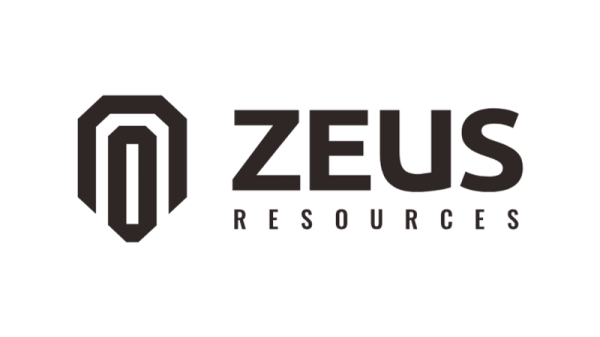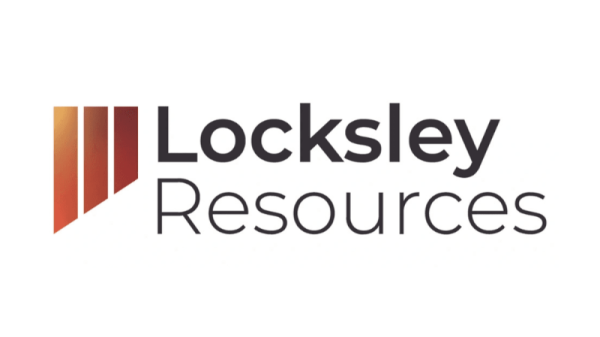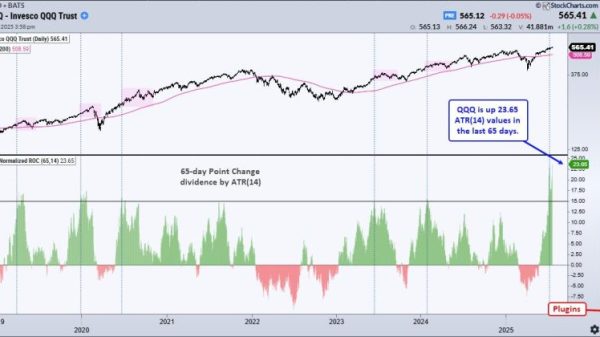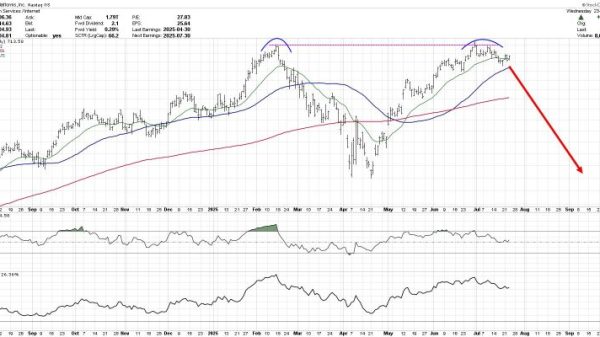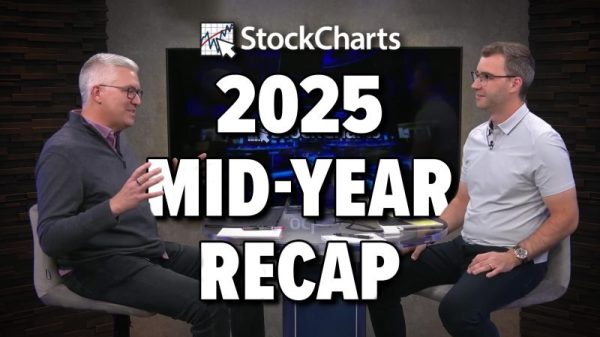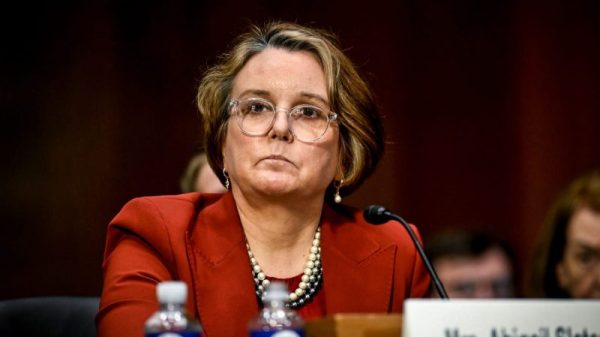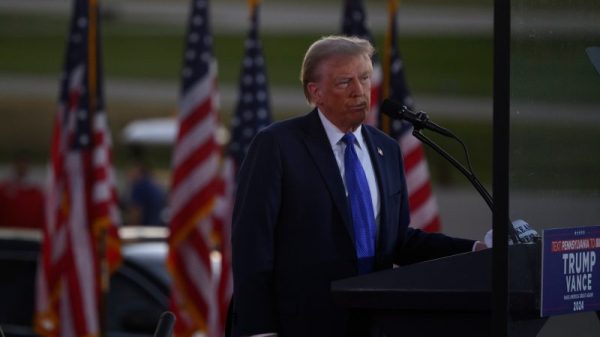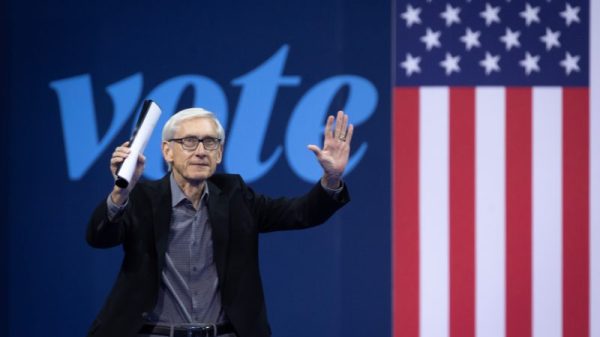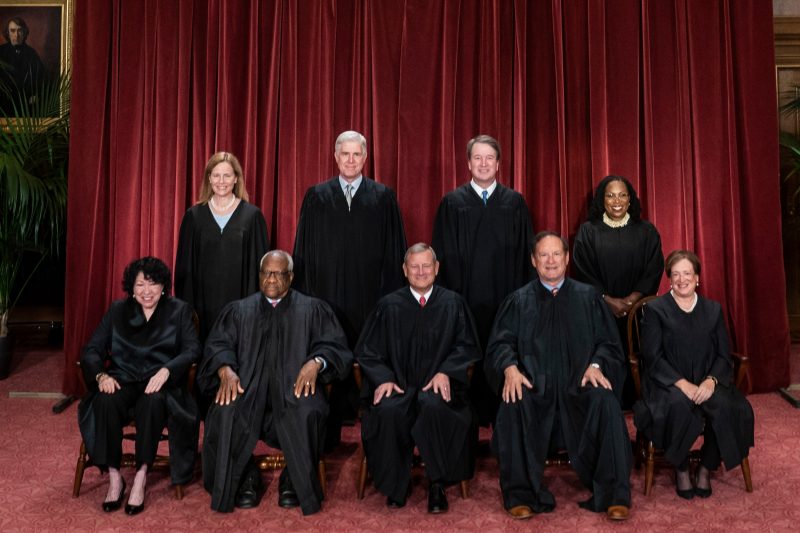The Supreme Court said Friday it would wade into the future of free speech online and decide whether to allow laws passed in Texas and Florida that would restrict social media companies from removing certain political posts or accounts.
The justices’ decision to take the landmark social media cases came in an order that also added 10 other cases to the calendar for the Supreme Court term that begins Monday. The additional cases concern the FBI’s “no-fly” list, individual property rights and the ability of criminal defendants to confront witnesses against them, among other matters.
Earlier this year, the high court said it would tackle issues in the coming term involving gun regulations, voting rights and the power of federal agencies. As they prepare to begin hearing oral arguments, the justices are facing intense pressure from Democratic lawmakers to address ethics issues confronting some of their colleagues, including potential conflicts in some of the cases.
Tech industry groups, whose members include Facebook and Google’s YouTube, asked the court to block Texas and Florida laws passed in 2021 that regulate companies’ content-moderation policies. The companies say the measures are unconstitutional and conflict with the First Amendment by stripping private companies of the right to choose what to publish on their platforms.
The court’s review of those laws will be the highest-profile examination to date of allegations that Silicon Valley companies are illegally censoring conservative viewpoints. Those accusations reached a fever pitch when Facebook, Twitter and other companies suspended then-President Donald Trump’s accounts in the wake of the Jan. 6, 2021, attack on the U.S. Capitol.
The justices’ ruling could have significant implications for the future of democracy and elections, as Americans increasingly rely on social media to read and discuss political news. It could also have wide-ranging effects for policymakers in Congress and statehouses around the country as they attempt to craft new laws governing social media and misinformation.
As Congress has remained deadlocked on those issues, states are playing a larger role in governing digital privacy, artificial intelligence and social media. Democrats largely have argued that the companies are not doing enough to root out hate speech and other harmful content online, and they have passed laws in California and New York to force greater transparency of the companies’ rules and decisions.
“There are really fundamental questions here about how to fit these new technologies with this old law that were always going to come due,” said Evelyn Douek, an assistant professor at Stanford Law School.
Appeals court judges, all nominated by Republican presidents, have issued conflicting rulings on a state’s authority to restrict a business’s ability to select, edit and arrange content that appears on its social media platform.
The Biden administration urged the Supreme Court to take the social media cases and to prevent the Texas and Florida laws from taking effect.
“The act of culling and curating the content that users see is inherently expressive, even if the speech that is collected is almost wholly provided by users,” U.S. Solicitor General Elizabeth B. Prelogar told the justices. “And especially because the covered platforms’ only products are displays of expressive content, a government requirement that they display different content — for example, by including content they wish to exclude or organizing content in a different way — plainly implicates the First Amendment.”
The First Amendment generally protects against government infringement on speech. Courts have also held that private companies, including newspapers and broadcasters, have the right to control the speech they publish and disseminate. That includes the right of editors not to publish something they don’t want to publish.
The Texas law, signed by Gov. Greg Abbott (R), allows state residents and the attorney general to sue large social media companies if they believe they were unfairly banned or censored from a platform. A similar Florida law would penalize social media companies for blocking a politician’s posts.
Last spring, in a 5-4 vote, the Supreme Court prevented the Texas law from taking effect while the litigation continues.
“Social media platforms have transformed the way people communicate with each other and obtain news,” Justice Samuel A. Alito Jr. wrote in a dissent to that ruling, which was joined by fellow conservative justices Clarence Thomas and Neil M. Gorsuch. “At issue is a groundbreaking Texas law that addresses the power of dominant social media corporations to shape public discussion of the important issues of the day.”
Alito added: “It is not at all obvious how our existing precedents, which predate the age of the internet, should apply to large social media companies.”
Liberal justice Elena Kagan also dissented from the majority ruling but did not provide an explanation.
The court is increasingly reckoning with the future of social media. Earlier this year, the court declined to weigh in on a controversial internet law at the center of the debate over social media regulation, part of a high-profile case that focused on whether social media companies should be liable when their algorithms promote harmful content. The Biden administration has also asked the justices to weigh in on a lower-court ruling that restricts the White House, FBI and key public health agencies from coercing social media companies to remove or suppress posts.
In some ways, the cases are thrusting the court into unfamiliar terrain.
“We’re a court. We really don’t know about these things. You know, these are not like the nine greatest experts on the internet,” Kagan said during oral arguments in February in the Gonzalez v. Google case, over the companies’ responsibility for terrorist attacks.
Jeff Kosseff, an associate professor of cybersecurity law at the United States Naval Academy, said the Supreme Court has “no choice” but to increasingly take on cases about the future of online speech.
“As you’ve had the internet playing an increasingly central role in life, and platforms playing an increasingly central in life, it’s raising all of these questions where we don’t have clear answers,” he said. “It’s their job to give clear answers.”
Tech trade groups Netchoice and the Computer & Communications Industry Association argue that if the laws take effect, they could make it legally risky for tech companies to remove violent, hateful or indecent content. But leaving the content online could lead to user and advertiser boycotts of the services, the companies say.
The CCIA, which represents Meta, X and Google, called the decision to review the laws “encouraging.” “It is high time that the Supreme Court resolves whether governments can force websites to publish dangerous content,” CCIA president Matt Schruers said in a statement. “Telling private websites they must give equal treatment to extremist hate isn’t just unwise, it is unconstitutional, and we look forward to demonstrating that to the Court.”
Kylie Mason, a spokeswoman for Florida attorney general Ashley Moody (R), said the state government was also “pleased” that the Supreme Court took up the case. “ … We look forward to defending our social media law that protects Floridians,” she said in an email.
Legal experts say it is difficult to predict how the courts will rule in the social media cases. Even though the laws were passed by Republican politicians, questions about their constitutionality could conflict with long-standing conservative judicial philosophy, Douek said.
“This is one of the few areas of constitutional litigation where the stakes are extremely high, but the political breakdown or what the court’s going to do is still extremely uncertain,” she said.
In the case involving the FBI’s “no-fly” list, which the government maintains to prevent terrorism suspects from boarding airplanes, the Biden administration asked the court to reverse a ruling from the U.S. Court of Appeals for the 9th Circuit. That ruling said an Oregon man’s challenge to his placement on the list could proceed even though the government had removed him from the list seven years ago and had submitted a sworn declaration stating that the man “will not be placed on the No Fly List in the future based on the currently available information.”
The high court will also review a case involving the right of property owners to sue the government for compensation when private land is taken for public use. A group of more than 70 landowners in Texas sued the state after they claimed that a highway construction project caused widespread flooding of their land. The project, designed to keep part of the road open during heavy rainfall, caused the other side to flood, along with the adjacent land, according to the property owners.
The floods turned farms into lakes, destroying crops and killing animals, according to the Institute for Justice, a nonprofit civil liberties group representing the landowners. The group is asking the Supreme Court to reverse a ruling from the U.S. Court of Appeals for the 5th Circuit that sided with the state and held that claims could not proceed because Congress did not pass a law allowing citizens to sue.
“Texas’s refusal to pay for the damage it caused has been a gross violation of our rights,” Richie DeVillier, one of the affected property owners, said in a statement. “It’s not just about us, it’s about all property owners, and the fundamental principles of responsibility and fairness.”
Texas attorneys told the court that the state is protected from liability and is not to blame for flooding during major storms in 2017 and 2019.
In another case the court accepted Friday, the justices agreed to consider the right of criminal defendants to confront expert witnesses at trial.


